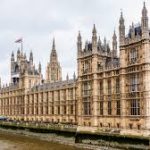By Our Reporter
The government of Kaduna State has stated that it will not allow mob to rubbish policies which it has outlined for the greater benefit of the people of the state.
The government stated this against the backdrop of a planned industrial action embarked upon by labour this weekend to protest the ongoing rightsizing of staff carried out by the government. In a strongly worded response to criticisms from certain quarters with regard to some of its policies on labour and the economic development of the state, the government explained that it did not come to power based on some unproductive populism that had always been the practice in the state. As such, it will continue on the same positive path which it believes will benefit majority of the people in the state.
According to the government, “the Kaduna State Government will not subject its policy to the veto of a mob. This government did not campaign on a platform of tired populism and it was not elected to practice timidity as public policy. It is not about to create the mistaken impression that it has much fiscal wiggle room as a subnational or that it is the supreme goal of government to pay 100,000 people while ignoring the larger public welfare of 10m citizens. The trade union laws of this country are not a cover for irresponsibility, and therefore everyone concerned should be rightly guided.”
At a press conference addressed by the Commissioner of Local Government and the Head of Service this Saturday, the government explained that it has been doing so much for labour in the state. “In September 2019, the Kaduna State Government became the first government at any level in Nigeria to pay the new minimum wage, along with consequential adjustments and it has continued to faithfully respect this obligation. It followed up by swiftly raising the minimum pension to N30,000 monthly for retirees on the old defined benefits scheme. The 23 local government councils in the state also complied and began paying the new wages. Amidst all the revenue challenges we have encountered over the last six years, the Kaduna State Government has always prioritised its ability to deliver capital projects and pay its personnel costs, especially salaries,” the government stated.
It also pointed out that the state is one of the states that is most faithful in implementing the Contributory Pension Scheme, effective from 1 January 2017. According to the government, “it has courageously attempted to settle the N14bn it inherited as arrears of death benefit and gratuity from 2010, commencing payments with those who had exited service the longest. Since 2015, the Kaduna State Government has paid over N13bn in death benefits and gratuity.
“As part of its commitment to the public service as the vehicle for the delivery of services and public goods to citizens, this government initiated the Public Service Reform and Revitalisation Programme in 2016. Its purpose is to modernise the service and make it more efficient and ICT-savvy. Apart from teachers and health workers, this government continues to also recruit required professionals for its agencies. It creates new jobs as it exits personnel from cadres that have been rendered obsolete. It is investing in training and has devoted 2% of FAAC receipts to fund training as a rigorous investment in building and boosting the capacity of its personnel.
“As sitting tenants, Kaduna State civil servants bought most of the non-essential residential houses the government sold in 2017 and the government supported their ability to pay for these houses by arranging single-digit interest mortgages for them.
The state government said, it has demonstrated in action its commitment to the welfare of its workers. But it insists that this is sustainable only in the context of the general welfare of residents of the state that the government itself is mandated to serve.
“Thus, it is not sustainable to persist in spending 84% to 96% of its FAAC receipts on salaries and personnel costs as has been the experience of the state since October 2020. This government was not elected to devote most public funds to paying government workers and treat that as its defining governance mission, to the detriment of developing the state and its people,” it explained.











